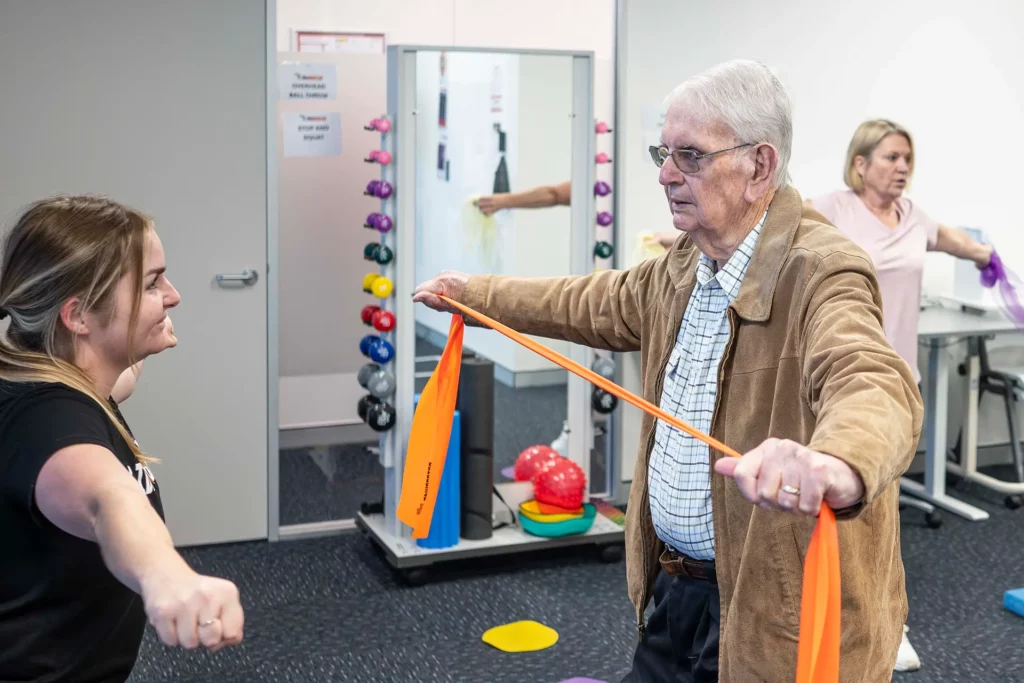We’re here to work with you, one-on-one. Together, we’ll take the time to understand your unique needs, goals, and how your condition is progressing. From there, we’ll create a personalised plan to help you manage your symptoms, stay active, and keep living life your way for as long as possible.
Our specialised Parkinson’s rehabilitation is available at multiple convenient locations—Ryde, Petersham, Penrith, and Collaroy—so you can access expert support closer to home.


Every day, I see the resilience of the human spirit. It’s what drives me to keep giving my best.
In the spirit of reconciliation, Royal Rehab acknowledges the Traditional Custodians of Country throughout Australia and their connections to land, sea, and community. We pay our respects to their Elders past, present and future and we extend our respects to all Aboriginal and Torres Strait Island peoples.
To improve your experience and ensure your data is protected, please note you will be redirected to PracSuite, our secure booking platform.
If you're ready to sign up now, please select the most appropriate option and complete the relevant form below.
